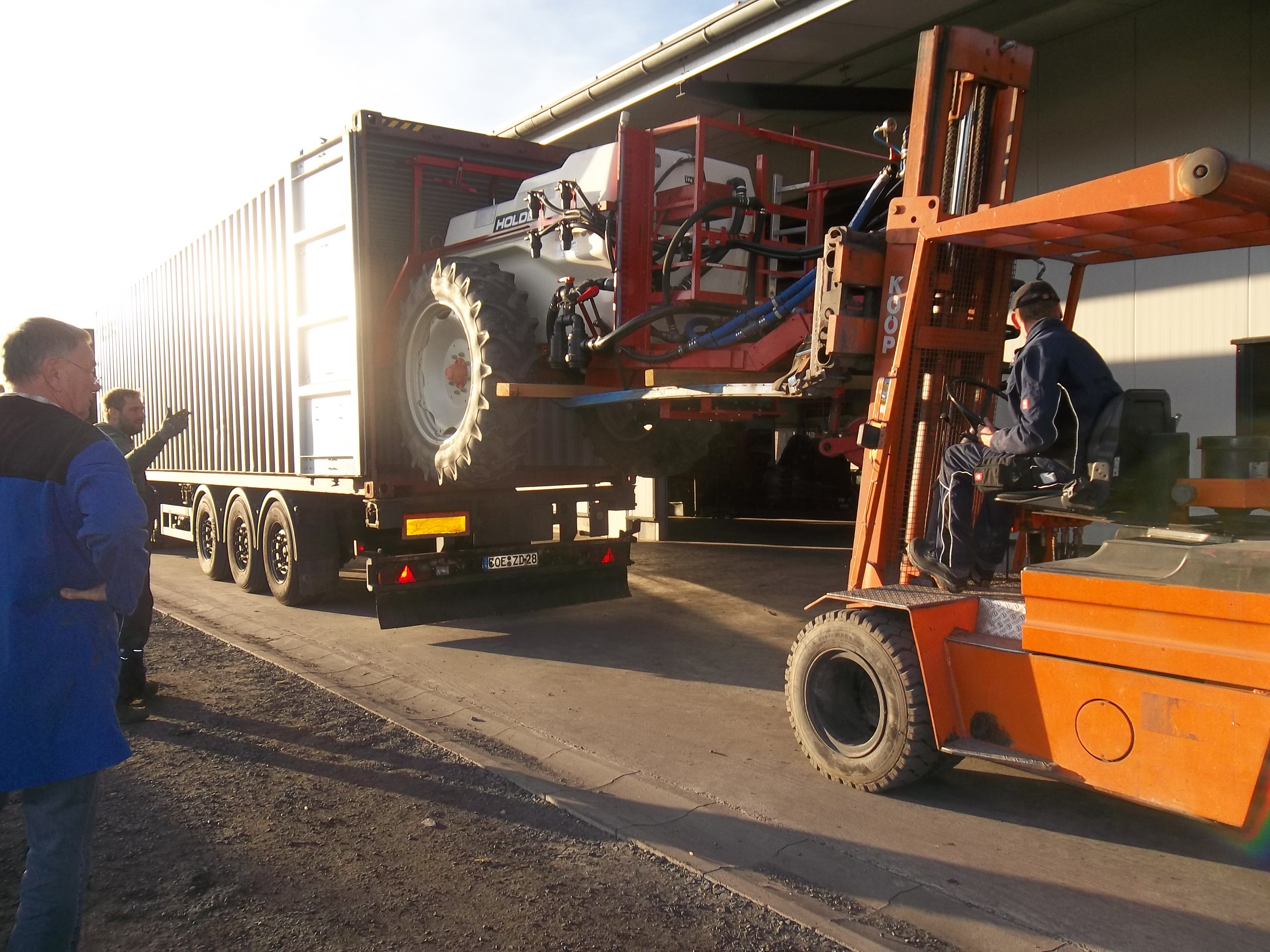Work tools for Ivoire Organics

Modern agricultural work tools were loaded and sent on their journey at the start of November as part of the PPP programme in order to support the development of organic farming in Côte d’Ivoire. The sea freight container is now on its way to the Port of Abidjan in Côte d’Ivoire and will arrive there at the end of November. With these supporting work tools, the cooperative association Ivoire Organics will be able to cultivate the land more economically and thus achieve greater harvests in the long term.
• 1 field sprayer for the pineapple plantation;
• 1 sowing combination comprising a chisel plough + attached seed drill for the pineapple plantation;
• Accessories for the mango sorting machine; and
• Several boxes of donated clothes were loaded.
Our agricultural engineer Marnie Kathem was present in Welver near Hamm when loading took place. The machines were disassembled and carefully stowed in the container on the grounds of the distributor of the field sprayer. Marnie closely observed the disassembly procedure, because the tools will have to be reassembled in the Côte d’Ivoire. She will also travel to the Côte d’Ivoire at the start of December and supervise the reassembly procedure.
The field sprayer was modified by the distributor for the needs of Ivoire Organics. It can now be operated manually; the tool could previously only be controlled electronically via a monitor – definitely ultra-modern, but also error-prone. If repairs are necessary, the machine should, where possible, be easy to repair and service without needing to send for expensive specialist electricians. Organic leaf fertilisers will later be spread over the pineapple plants with the sprayer.
The seed drill, on the other hand, is a second-hand tool and required some repair and maintenance works. Alfred Haase, our man in quality assurance, took on the responsibility for this. He is not only a trained agricultural engineer, but also a metal worker.
The seed drill was tested on the organic field of a friend, where a so-called calibration test was conducted, i.e. it was determined how big the quantity of seed to be drilled per hectare will have to be. For this purpose, Marnie Kathem counted out and weighed 1000 beans. The result is calculated on the basis of a certain formula and the calibration quantity is then produced.
Ivorian soil is of course different to German soil, i.e. we adjusted the quantity of seed to be used based on our local experiences in Côte d’Ivoire. Base flap, seed wheel speed and slide gates are other components that must be taken into consideration. In detail, agriculture and organic farming can be a highly scientific and mathematical matter.
We will report on the first use of the work tools at Ivoire Organics.
Text: Visnja Malesic
Pictures: BioTropic GmbH
Status: November 2015
Tags: Alfred Haase (GB), Ivory Coast (GB), Ivoire Organics (GB), PPP (GB)





